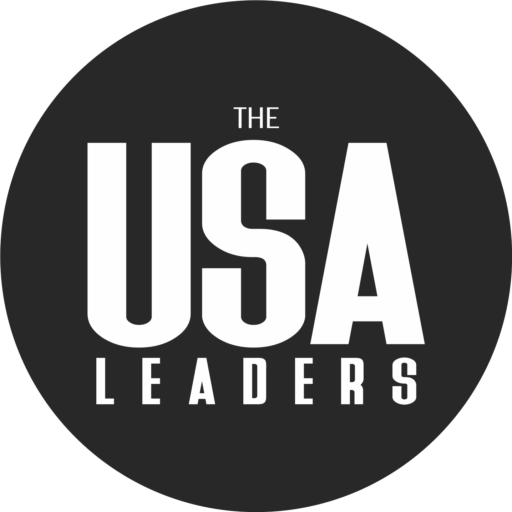Leadership is a vital skill that transcends professional boundaries[A1] , enabling individuals to inspire, guide, and influence others towards achieving common goals. In an era characterized by rapid technological advancements, shifting societal norms, and increasing global interconnectedness, the ability to lead effectively has become more crucial than ever. Developing leadership skills is not a one-time endeavor but a continuous journey that demands self-awareness, dedication, and a willingness to embrace change and innovation.
Whether you are an aspiring leader or an experienced professional seeking to enhance your leadership abilities, adopting a strategic approach to personal and professional development is key. This article delves into various strategies for cultivating leadership skills, from honing communication and team-building abilities to fostering a growth mindset and embracing continuous learning. By exploring these strategies, individuals can unlock their leadership potential and make a meaningful impact in their personal lives, workplaces, and communities.
1. Self-Reflection and Awareness
The foundation of effective leadership lies in self-reflection and awareness. Understanding your strengths, weaknesses, values, and leadership style is crucial for personal growth and effectiveness as a leader. Regular self-assessment and seeking feedback from peers and mentors can provide valuable insights into your behavior and its impact on others. Embrace self-reflection as a tool for continuous improvement, and use it to guide your development as a leader.
2. Pursuing Educational Opportunities
Investing in education is a powerful way to enhance your leadership skills. Enrolling in a Masters of Arts in Organizational Leadership program, for example, can provide you with a deep understanding of leadership theories, strategies, and practices. Such programs offer a comprehensive curriculum that covers topics like team dynamics, ethical decision-making, and change management. By pursuing a Masters of Arts in Organizational Leadership, you can gain the knowledge and credentials needed to advance your career and become a more effective leader.
3. Effective Communication
Communication is a critical component of leadership. Developing the ability to convey your vision, listen actively, and provide constructive feedback is essential for building trust and fostering collaboration within your team. Practice clear and concise communication, and be mindful of non-verbal cues. Enhancing your communication skills will enable you to connect with your team members more effectively and drive collective success.
4. Building and Leading Teams
A leader’s ability to build and lead cohesive teams is fundamental to achieving organizational goals. Focus on creating an inclusive environment that values diversity and encourages open dialogue. Set clear expectations, delegate responsibilities, and empower your team members to take ownership of their roles. By fostering a culture of trust and accountability, you can inspire your team to work collaboratively and achieve exceptional results.
5. Embracing a Growth Mindset
Adopting a growth mindset is crucial for continuous learning and development as a leader. View challenges as opportunities for growth, and encourage your team to do the same. Stay open to new ideas, seek out learning experiences, and embrace change as a catalyst for improvement. A growth mindset will not only enhance your leadership skills but also inspire your team to strive for excellence.
6. Leading by Example
One of the most powerful ways to enhance your leadership abilities is to lead by example. Your actions and behavior set the tone for your team and organization. Demonstrate the values, work ethic, and attitude you expect from others. By embodying the qualities of a good leader, you inspire those around you to follow suit and contribute to a positive and productive work environment.
7. Cultivating Emotional Intelligence
Emotional intelligence is a key component of effective leadership. It involves being aware of your own emotions and those of others, managing emotions effectively, and using emotional insights to guide decision-making. Developing emotional intelligence can improve your ability to navigate complex interpersonal dynamics, resolve conflicts, and build strong relationships with your team members.
8. Encouraging Innovation and Creativity
Fostering an environment that encourages innovation and creativity is essential for staying competitive and adapting to change. As a leader, empower your team to think outside the box, take calculated risks, and experiment with new ideas. Celebrate successes and learn from failures. By promoting a culture of innovation, you can drive progress and keep your team engaged and motivated.
9. Practicing Resilience and Adaptability
In today’s fast-paced and ever-changing world, resilience and adaptability are critical leadership qualities. Develop the ability to bounce back from setbacks and embrace change as an opportunity for growth. Cultivate a positive attitude and remain flexible in the face of adversity. Resilient and adaptable leaders are better equipped to navigate challenges and lead their teams through uncertain times.
10. Continuous Learning and Development
Leadership is a lifelong journey that requires continuous learning and development. Stay curious and committed to your personal and professional growth. Seek out new experiences, attend workshops and conferences, and read widely on leadership and management topics. By staying informed and open to new perspectives, you can continuously refine your leadership skills and stay ahead in your field.
Conclusion
Developing leadership skills is an ongoing journey that requires self-reflection, commitment, and a proactive approach to personal and professional growth. By embracing the strategies outlined in this article, individuals can enhance their ability to inspire, motivate, and lead others effectively. Pursuing educational opportunities, cultivating emotional intelligence, and fostering a culture of innovation are just a few ways to strengthen leadership capabilities. Additionally, leading by example, practicing resilience, and embracing continuous learning are essential for adapting to the ever-changing landscape of leadership. As you embark on this journey, remember that leadership is not just about holding a position of authority, but about making a positive impact on the lives of others and driving meaningful change. Whether you are leading a small team or an entire organization, your leadership skills can be the catalyst for success and growth. Embrace the challenge, stay committed to your development, and strive to be the leader you aspire to be.

















